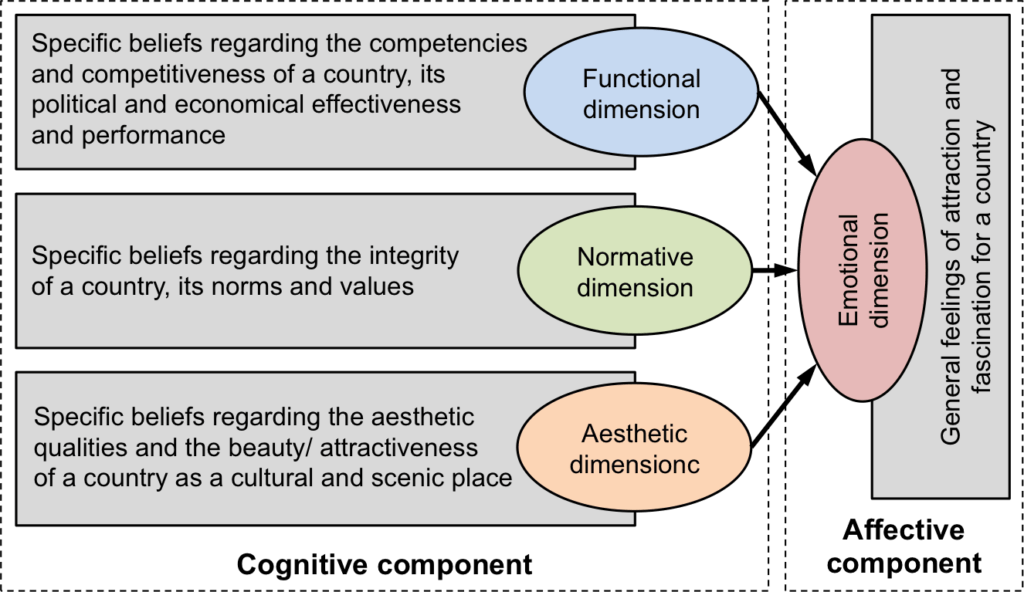For the past decade, I have reflected on how Nigeria has used political power to improve the lives of its citizens, over the past sixty years.
Unfortunately, evidence points to power being inadvertently used to propagate poverty among the average Nigerian across major socioeconomic indicators such as:
- Security and vulnerability
- Political rights and influence
- Socio-cultural status and recognition
- Nutrition, health and education initiatives
- Economic development via consumption, income, and assets
- Gender equality
- Environmental sustainability
… and there seem to be no end in sight/comprehensive plan to alleviate these. For proper context, about 65% of our population is now under the poverty line, earning less than $1.9 per day.
Nigeria has a wealth of potential waiting to be unleashed, but the progress towards achieving it has been hindered in the past. The good news is that many are yearning for change, and we can all be a part of it. With a renewed sense of nationalism and common identity, Nigeria can create standards of equality and a shared vision for a prosperous future.
The possibilities are endless for those willing to be involved in governance, education, economic development, heritage, and culture. With so much to offer, Nigeria can create a unique identity that will attract investors and interest groups, ultimately leading to a brighter future for all.
This isn’t a political narrative but one which seeks to propose an alternative approach to our socioeconomic trajectory and governance, wrongly charted over the years, as a Country, since 1960. I’m a firm believer that we got it wrong from independence and in tune with modern times, need to correct same with well-crafted thinking and a different overall approach.
I’ve also listened to various cultural, economic and social arguments on why the Country is doing well or otherwise. These arguments are often buttressed with various data, but one thing most fail to realize is that we have a root problem that is mainly threefold – lack of a common identity and purpose, visible inequality, and a lack of output-based standards, across board.
Some Background
Since Nigeria’s independence in 1960, the country’s diverse ethnic groups primarily reasoned along ethnic lines, resulting in favoritism, lack of trust, and greed. Coups, counter-coups, and civil wars exacerbated the ethnic division, making Nigeria unable to take full advantage of its oil resources to achieve economic development.
Today, Nigeria’s population exceeds 210 million, with over 250 ethnic groups and more than 500 indigenous languages. The challenges facing the country – such as inequality and identity crisis among the youth – require a strong political leadership that is willing to rethink its socioeconomic trajectory and governance. The identity issue is why no political party pursues a clear ideology/identity themselves, and therefore have no idea on how to address these age-old problems.
We are today officially the most populous country in Africa and the seventh most populous country in the world. We have the third-largest youth population in the world, after India and China. Nigeria’s population data shows that young adults between the ages of 15 – 24 are 21% of the population, whilst children between the ages of 0 – 14 are 42% of the population. Simple math tells us that 63% of Nigeria’s population are between the ages of 0 – 24!
One of the greatest challenges facing young populations across the world is at the very minimum – creating acceptable identities for themselves. If we don’t help to shape an identity (that addresses their mindsets and starts to build a Nation’s mindset), they will either do it or follow whatever seem to be the current fad and ignore the consequences. The alarming identity/mindset crises has already commenced amongst the Nigerian youth and needs to be re-shaped, immediately.
The Alternative Proposition
So what is the alternative proposition to address issues around inequality, lack of standards, lack of any “common theme” holding together our diverse ethnic fabric, identity crisis amongst our teeming youth, etc? We need to create a “theme” – Nation’s Identity/Brand/Vision (and I will continue to use these words interchangeably); in other words, define an identity for the Nation and let that identity drive/inspire/motivate every single thing we do, as a Nation.
There’s a process that drives this type of proposition, which has been done amongst many forward-thinking Nations. These Nations are often the viable/destination of choice – where many young Nigerians are migrating to. Before the synopsis and approach below, check https://www.citynationplace.com/the-nation-branding-playbook on guidelines for Nation branding/identity creation.
Alternative Proposition: Synopsis and Approach
To develop this unique identity which a number of developed Nations have done, major areas to typically focus on are as follows:
- Governance
- People
- Exports
- Culture & heritage
- Investments & immigration
- Tourism
The work highlights to be done along each of these areas are seen below in the Nation brands model by Simon Anholt (2000):

The work output here will reveal a unique National identity for Nigeria, across all 774 LGAs. Every single citizen must get a sense of involvement and awareness of this process. The unique identity/mindset created becomes a go-to point that determines how we approach every National issue – Legislative, Executive and Judicial. State governments will naturally take a cue.
Several forward-thinking nations worldwide have successfully created unique national identities to attract foreign direct investment and promote economic development. For instance, the UAE marketed itself as a destination for tourism and real estate investment. Every initiative in Dubai reflects this identity, leading to more foreign direct investment from tourism than from oil. Think about it for a minute.
As a next step, outputs from each area of this ‘Nations Brand model’ is further unpacked into two areas (Major Components of a Nation’s Identity below) for further tests:
- the cognitive component – to gauge what your unique identity is and what you’re actually doing to live that identity and
- affective component – to translate that unique identity into an emotion that actually motivates people to take action by investing in the Nation/etc which helps to determine if as a Nation, the rest of the world recognizes and trusts the identity you have created.

The final illustration (Value Drivers of a Nation’s Identity below) as an example of exports in the Nation’s Brand Model and shows how data can be applied to a Nation’s identity to gauge the potential economic success and what areas need further work. In this case, a predictive intention that helps the Swiss government gauge if their export products will be bought globally.
Take a moment and ask yourself… What will be the results if Nigeria’s export products are put to this test today?

This Nation’s brand/identity must be sold to investors/interest groups worldwide (privately and publicly) to attract the required greenfield FDIs. FDI investment will target each priority sector/sub-sector. An example is the National Integrated Infrastructure Master Plan, targeted at infrastructure across the six geo zones but cannot be funded with our current dependence on ‘oil money’. Nigeria needs a clear route to attract/retain investors. The public sector also needs a total reform to make this work. The drill down effect, if you take education as an example is that the sector‘s overall curriculum will be aligned with the Nation’s brand/identity.
The idea is to align all plans and spending (A-Z) to an overall Nigerian vision/identity and no National Assembly (nass.gov.ng) group/or reps can unilaterally change/amend budgets without showing us that the change is also aligned to the Nigerian vision/brand. As highlighted earlier, country examples exist – UAE, Rwanda, Indonesia, Germany, Ethiopia/etc.
Most of us experience the subtle brand narrative on CNN without even realizing it. Have you seen a recent ad (on CNN) about Japan being the “country of comfort and thoughtfulness” or hearing that Israel is branded as “hope realized”? Most of us don’t realize that these are subtle messages/methods that shape how we think of these Nations, of course backed by real work to justify their brand narratives.
Let the Nigerian vision/brand/identity guide every single thing we do – political, economic and behavioural culture. If an initiative doesn’t support the overall vision, we question and amend same. All must be in alignment at the Local, State and Federal levels. This is the way to bridge the income, social, ethnic, poverty and knowledge gaps currently pushing Nigeria to a sad brink.
The Power of Identity in Economic Progress
- Attracting Investment: A clear and compelling national identity helps attract foreign direct investment (FDI) by highlighting Nigeria’s unique advantages and market potential. Investors are more likely to engage with a country that has a distinct identity, as it provides a sense of stability, reliability, and authenticity.
- Fostering Innovation and Entrepreneurship: An established national identity provides a foundation for innovation and entrepreneurship. By celebrating its cultural heritage and encouraging creativity, Nigeria can inspire its citizens to develop innovative solutions that address local and global challenges, leading to economic growth and job creation.
- Building a Strong National Brand: Crafting a strong national identity allows Nigeria to build a cohesive and recognizable national brand. A well-defined brand helps differentiate Nigeria in the global market, attracting tourists, promoting exports, and enhancing the country’s international reputation.
- Promoting Cultural Tourism: Nigeria’s diverse culture and traditions present immense opportunities for cultural tourism. A distinct national identity can serve as a magnet for tourists seeking authentic cultural experiences, generating revenue, and supporting local communities.
Five disciplines that can triple the success rate of this approach by government
- Clear purpose and priorities
- Committed leadership
- Coordination in delivery
- Compelling communication
- Capability for change
Four (4) Key areas to Influence
At Carthena Advisory, our ‘Nation Brand Framework’ identifies four (4) key areas that Nigeria’s branding/Identity creation should target to influence:
- Investments: Domestic and Inward Flows – Nigeria’s brand should encourage local commerce to invest locally as opposed to investing overseas. It should attract Foreign Direct Investment, including business relocation. The nation’s brand image should represent the characteristics that make Nigeria a desirable place to do business.
- Talent: Domestic and international – Citizens should be encouraged to study and work locally rather than going overseas to avoid the current ‘japa brain drain’. At the same time, Nigeria’s brand should be attracting foreign students and skilled workers to study and work in the country to contribute to our local economy.
- Goods & Services: Domestic and Export – Locally made products and services should be promoted locally and internationally, encouraging increased consumption of local products, increasing exports and reducing imports.
- Tourism: Domestic and Foreign – Our brand/identity should promote local choice destinations to both local and foreign tourists whilst encouraging domestic travel as well as international tourism.
Concluding Thoughts
The approach to Nigeria’s branding/identity creation will ensure that assessments are holistic and specific. These will ensure that our redefined identity/brand works to serve both the nation as a whole and also plays to its strengths across key sectors of the economy. In a similar way, corporates can also benefit from location branding, leveraging the reputation nurtured through Nigeria’s branding.
If you watch this @simonsinek’s video – http://youtu.be/qp0HIF3SfI4 on how true leaders inspire, you will notice the thinking is from ‘inside out’. Aspiring leaders in Nigeria must think in terms of ‘why, how and what’. Sorting this big picture (starting with our Nation’s brand identity) will show the seriousness of any leadership and herein lies the beginning of any meaningful and sustained economic transition in Nigeria.
Share amongst your network and debate its merits vs Nigeria’s current development trajectory.
I look forward to your comments.





